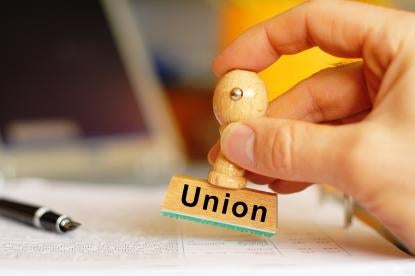On March 21, 2017, the National Labor Relations Board (“NLRB” or “Board”) found that a Teamsters local violated Section 8(b)(1)(A) of the National Labor Relations Act (“Act”) by failing to provide sufficient information about the financial expenditures of the local and its affiliates to two workers employed in a bargaining unit who exercised their rights to object to paying union dues and fees pursuant to Communications Workers v. Beck, 487 U.S. 735 (1988).
Teamsters Local 75 – Schreiber Foods
In Teamsters Local 75, affiliated with the International Brotherhood of Teamsters, AFL-CIO (Schreiber Foods) the NLRB issued its Second Supplemental Decision and Order following up on prior Board decisions in the case’s long history and unanimously held that Teamsters Local 75 unlawfully sought to collect union dues and fees from two employees who invoked their Beck objector rights. Specifically, the Board ruled that the Union failed to provide adequate and detailed financial disclosures because, in addition to the providing the details about the local’s own expenditures of employees’ dues, the Board ruled the local must also provide details about its affiliates’ financials resulting from the local’s “per capita tax” expenditure—that is the portion of dues money that the local shares with its affiliates. With respect to the Teamsters, the “per capita tax” is the amount that a local of the Teamsters union pays, using a portion of each employee members’ dues money, to three affiliated entities—the International Brotherhood of Teamsters (International), the relevant Conference of Teamsters (Conference), and the relevant Teamsters Joint Council (Jt. Council).
The Board’s Reasoning
The Board relied in part on its rationale and holding in Teamsters Local 579 (Chambers & Owen), 350 NLRB 1166, 1170-1171 (2007), wherein the Board overturned its prior holding that a union that pays per capita taxes to its affiliates is not required to provide Beck objectors with information regarding “how its affiliates determined the chargeability to the objectors of the per capita taxes that the affiliates received and spent.” Id. at 1168. Rather, in Chambers & Owen, the Board not only held that “this affiliate information must be furnished to a Beck objector so that he or she can determine whether to file a challenge” id. (emphasis in original), but it also found that the union’s failure to provide such information violated Section 8(b)(1)(A) and its duty of fair representation. Id. at 1169, 1171.
What the Board Will Now Require
Here, the Board reached the same conclusion—and went a step further—noting that Teamster Local 75 must provide the Becks objecting employees with the following detailed expenditure information:
[T]he major categories of its expenditures, the percentage of each category that it considers chargeable and nonchargeable, and a detailed explanation of how it calculates its allocation of expenditures; the names of its affiliates and other entities with which it shares income from dues and fees, the amounts of income shared, the major categories of expenditures of each affiliate or other entity and the percentages of each category those affiliates and other entities consider chargeable and nonchargeable, and a detailed explanation of how the affiliates and other entities calculated their expenditure allocation.
What This Means Going Forward
This holding essentially means that unions will have to disclose much more detailed financial information when employees exercise their Beck rights—information that unions will likely be far more resistant and hesitant to provide. With affiliates’ expenditures coming under greater scrutiny, it also makes it more likely that Beck dues objectors will seek to have less of their money going to the unions (and their affiliates) activities. With more Americans than ever choosing to be union-free and/or choosing not to be union members, this decision places much more power with individual employees, and emboldens their protected right to refrain from union activity, a right already afforded under the Act but often glossed over by unions.



 i
i

